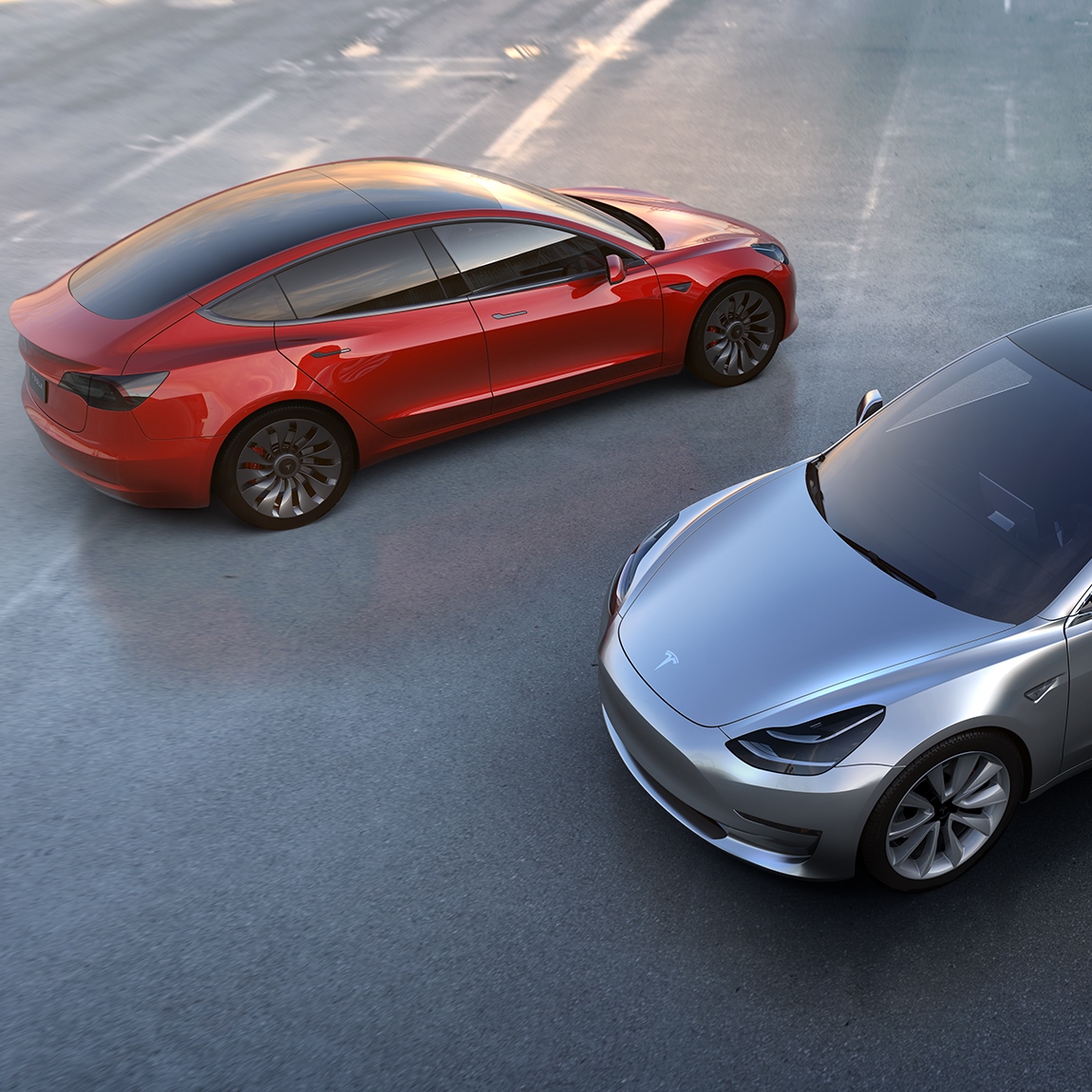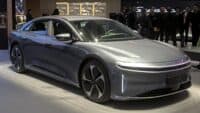
Friday’s rollout of the first 30 Tesla Inc. (NASDAQ: TSLA) Model 3 production vehicles might generated as much ink (including burned pixels) as the Hollywood premiere of “Gone with the Wind.” After all the hype, we can all be forgiven if we think that the Model 3 is the only all-electric (EV) on U.S. roads.
In fact, though, including the Tesla Model S sedan and Model X crossover, there are 13 EVs available in the United States, varying in price from around $28,000 to well over $100,000 for a top of the line Tesla Model S P100D.
The Model 3’s main competitor is the Chevrolet Bolt from General Motors Co. (NYSE: GM) which is available at a list price of around $37,500 compared to the Model 3’s base price of $35,000. What sets these two cars apart is their range on a single full charge — more than 200 miles, double the range of any other vehicle in the group at the base price.
Sales of all-electric cars are up nearly 30% in the United States through the first six months of this year. A total of 44,228 EVs have been sold with four models taking up the lion’s share of the total: Tesla’s Model S (11,100; 25% of sales); Tesla Model X (9,100; 24% of sales); Chevy Bolt (7,592; 19% of sales); and Nissan Leaf (7,248; 17% of sales). Many EVs are not available for sale in all 50 states
We’ve combined two reports, one from hybridcars.com and the other from greencarreports.com, to create this list of the 13 EVs currently for sale along with the vehicle’s MSRP and its range on a fully charged battery. The list is ordered by 2017 year-to-date sales.
- Tesla Model S: $69,200; 210 miles (60 kWh battery); 11,100 total 2017 sales
- Tesla Model X: $90,000; 238 miles (75 kWh battery); 9,100 sales
- Chevy Bolt: $37,495; 238 miles (60 kWh battery); 7,592 sales
- Nissan Leaf: $31,545; 107 miles (30 kWh battery); 7,248 sales
- BMW i3: $43,395; 81 miles (22 kWh battery); 2,992 sales
- Fiat 500e: $32,780; 84 miles (24 kWh battery); 1,865 sales
- VW e-Golf: $30,000 (est.); 125 miles (35.8 kWh battery); 1,887 sales
- Ford Focus EV: $29,995; 115 miles (33.5 kWh battery); 1,058 sales
- Kia Soul EV: $32,800; 93 miles (27 kWh battery); 836 sales
- Mercedes B-Class Electric: $40,825; 87 miles (28 kWh battery); 317 sales
- Hyundai Ioniq EV: $29,500; 124 miles (28 kWh battery); 157 sales
- Smart forTwo EV: $16,850; 80 miles (17.6 kWh battery); 57 sales
- Chevrolet Spark (discontinued): $25,120; 82 miles (19 kWh battery); 13 sales
Volkswagen’s 2017 version of its e-Golf is a significant improvement over the previous model. Ford Motor Co.’s (NYSE: F) Focus EV competes directly with the VW e-Golf on price and range, but June sales of the VW EV were more than double that of the Focus EV. The good news for VW is that six-month sales of the e-Golf are up 30% year over year. The better news for Ford is that Focus sales are up 137% for the first half of this year. The less-good news is that both cars sold fewer copies in June than they did last year.
Two years from now the number of EVs with battery ranges of at least 200 miles will rise from four to 10 and by the end of 2020 there could be as many as 20 on the market. Hybridcars.com lists 14 models currently known to be in the works:
- Audi e-tron Quattro Crossover: April 2018
- Jaguar i-Pace Crossover: July 2018
- BMW 3 Series: October 2018
- Audi eTron Sportback Crossover: June 2019
- Mercedes ELC (based on GLC): June 2019
- Mercedes C-Class: October 2019
- Mini Unnamed: October 2019
- Porsche Mission E (Pajun is nickname): October 2019
- BMW X3: 2020
- Ford Model E Crossover: April 2020
- Smart BEV: CY20
- Volvo BEV: CY19
- VW ID Crozz Crossover: October 2021 (not counted for 2020)
- VW ID Car: January 2021 (not counted for 2020)
In 20 Years, I Haven’t Seen A Cash Back Card This Good
After two decades of reviewing financial products I haven’t seen anything like this. Credit card companies are at war, handing out free rewards and benefits to win the best customers.
A good cash back card can be worth thousands of dollars a year in free money, not to mention other perks like travel, insurance, and access to fancy lounges.
Our top pick today pays up to 5% cash back, a $200 bonus on top, and $0 annual fee. Click here to apply before they stop offering rewards this generous.
Flywheel Publishing has partnered with CardRatings for our coverage of credit card products. Flywheel Publishing and CardRatings may receive a commission from card issuers.
Thank you for reading! Have some feedback for us?
Contact the 24/7 Wall St. editorial team.




